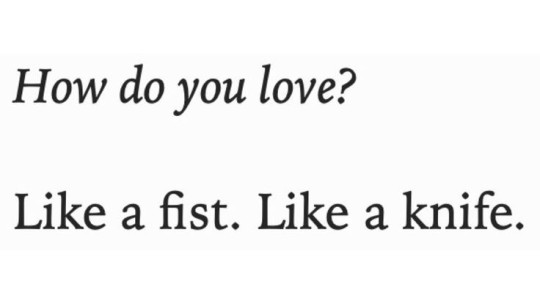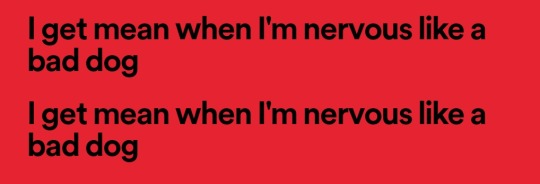“Oh, Hazel look! The field! It's covered in blood!” Dragon. Australian. Lawyer. Writing Blog. Semi-serious. Rarely any writing. On AO3 as: Devourthedragon
Don't wanna be here? Send us removal request.
Text
If you're reading this...
go write three sentences on your current writing project.
386K notes
·
View notes
Text
Fanlore Info Dump | Sentinels & Guides
So thanks to the babe @leschanceux and feral encouragement from folx in the Dev Tea Room, I'm going to info dump about my very specific interest: the Sentinels & Guides Trope!
What Even Is the Sentinel/Guide Trope?
The origin of this trope is from a TV Show in the 90s (literally called The Sentinel) where one main character has latent hyper-enhanced senses triggered by being stranded in an extreme situation, revealing that he is a Sentinel. Through the show's narrative, we learn that Sentinels are an evolutionary role in mankind that has existed throughout all historical societies, manifesting in people who are biologically granted abilities to serve as "Protectors" of a community. This means Sentinels have (at least 3, sometimes all 5) exceptionally enhanced senses, which they can dial up or down as the situation calls for it.
But the thing about Sentinels is that their enhanced sense are a double edged blade. Yes, they're powerful and tend to have the advantage in a fight or encounter, but those senses can also present a significant weakness due to what's called 'Zoning' Or 'Zoning Out.' This is when the Sentinel becomes too hyperfocused on one single sense to the detriment of everything else, and is unable to pull themselves back. Zoning can also happen if they have a sense dialed up (like their hearing in order to track something far away) and an unexpected input overwhelms that sense (such as a loud explosion into a heightened sense of hearing). When a Sentinel zones, they are both incredibly physically vulnerable because they're immobile and unresponsive, and they're at risk of never being able to find their way back from their hyperfocus (which would ultimately lead to their death). This is where Guides come in.
Guides themselves do not have any canon enhanced abilities in the original content. In fact, they're technically fanon as a result of one episode in the TV show. But their presence is widely accepted as adopted canon in the Sentinel/Guide trope, and pretty much everyone writes them as the unique "other half" of a Sentinel -- if not uniformly empowered. Guides are the biological companion to Sentinels, possessing the ability to connect with a Sentinel on an astral or spiritual level. The original show used the concept of a "Sp!rit World" and "Sp!rit Animals" alot when relating the Guide character to the Sentinel character, a detail I don't personally adhere to nor promote because of its typical appropriative 90's TV shaman stereotyping. But the trope itself has moved beyond those origins to instead keep the basic concept of a metaphysical "soul-bond" connection between a Sentinel and a Guide. This means that the Guide has the ability to empower and protect the Sentinel's senses from harm. A bonded Sentinel/Guide pair are meant to be inseparable, and are often considered incredibly powerful because the Guide unlocks the potential of the Sentinel.
(Sidenote: As you can tell from my note above, the show had some good stuff, but overall it was kind of poorly done? Low budget, etc etc. The vast majority of the audience keeping the fandom alive were early era slash fans who saw the two main male characters and immediately built up fanlore around them. When the show was cancelled in 1999, many of those fans kept the concepts introduced in it alive by injecting this trope -- with improvements -- into other fandoms. We salute you, Fandom Elders! )
Tell Me More About the Connection Between a Sentinel & a Guide
The Sentinel/Guide bond can be written in a wide variety of ways, often tailored to suit whatever fandom the Trope is being applied to. But there are some universalities. Such as:
Guides can convene with the Sentinel at a metaphysical/transcendental level (sometimes interpreted as a telepathic connection), guiding the Sentinel to focus on or repress one sense over another and fine tuning their abilities in the process.
Sentinels with Guides have notably more powerful senses and better control over them. They are often consider the most powerful iteration of a Sentinel.
Guides can reel back a Sentinel's senses, even shield a sense from sensory input in order to avoid being overwhelmed.
Guides can also pull a zoning Sentinel out of their zone by giving them a lifeline to follow back to the physical world (note, a Guide does not need to be bonded to a Sentinel to accomplish this)
There are more elements of the Sentinel/Guide Pairing that are considered flexible to the trope, often applied in writing and art but not labeled as requirements. Such concepts include:
Sentinels and Guides are generally believed to have been biologically destined for one another. A Guide's scent will be pleasing to a Sentinel, for example. The sound of their voice is naturally calming and grounding.
Some Sentinels and Guides have full-on telepathic bonds, sometimes they just have a merging of souls and a sense for one another. Almost always, and Guide can sense what a Sentinel is feelings unless the Sentinel closes himself off from his Guide.
In some scenarios, Sentinels can let Guides perceive the world through their own heightened senses, so a Guide can experience those same abilities.
Sentinels can be territorial of their Guides, and sometimes just territorial in general. They occasionally get written with overlap in the A/B/O lore, where Sentinels are Alphas and Guides are Omegas. This means that two Sentinels tend to be written as kind of aggressive towards one another.
Sometimes a Sentinel/Guide Bonding includes the "bond bite' (yet another thing that tends to overlap with the A/B/O Dynamics in the writing). These are bites on the neck that seal the bond between Sentinel and Guide and can trigger the psychic/telepathic connection between the pair.
Guides are sometimes treated like coveted prizes in fictional societies. Sometimes the premise will be that there are more Sentinels born than there are Guides, and so Guides becomes highly sought after and sometimes aren't given much autonomy or rights (this has some similarities with the social dynamics of Witches and Familiars in our other verse)
Guides aren't always depicted as the weaker of the pair, but there is sort of an implication there. The concept is that while Guides are not weak, they are an Sentinel's weak spot. A villain to seek to control a Sentinel by taking the Guide hostage, for example.
Again, none of the above details are necessary to depict the Sentinel/Guide trope. They're just additional features I have observed in the concept as it has evolved over the past 20-odd years.
Let's Talk Power Sets
Sentinel Ability Specifics
Hyper-acute Senses of Smell, Hearing, Sight, Taste, and Feel: This means they can sense things completely indiscernible to regular humans, sometimes miles away in different locations or behind seemingly impenetrable barriers. Examples: They can hear the heartbeats of goons in a underground compound they plan to infiltrate; They can smell the diesel of an incoming military vehicle that hasn't even crossed a border control checkpoint; they can feel the heat of a fire that started hundred of hectacres downwind; They can see a termite crawl on the wooden window sill of a cabin on the opposite side of Lake Michigan.
Detect Physiological Responses: This ties in to a Sentinel's acute awareness to detail, in that they can focus their senses on an individual to determine whether they are lying or having a response to something. Examples: they can focus on the sound of a person's heartbeat to catch heartrate spikes as a sign of lying; They can smell the flopsweat on a person who is suddenly nervous; They will see any tics that betray a person's true intentions.
Accompanying enhanced strength/speed/reflexes: This isn't present in all depictions of Sentinels, but does occasionally come up as another way to make Sentinels seem more like superhuman protectors. In addition to their enhanced senses, they also react more quickly, which gives them the appearance of being faster and more agile. Or by shutting down senses that transfer pain, they can push their bodies beyond normal human limits.
Guide Ability Specifics
Grounding a Sentinel: A Guide's attributes are all meant to be a natural focal point for Sentinels, so Guides use their voice and touch to draw a Sentinel's attention onto them, or will have them focus on their smell or their heartbeat to settle and orient their own senses.
Dialing up/down a Sentinel's Senses: The 'Dials' concept is often used in this trope for visualizing how each set of senses can be scaled up or down with the assistance of a Guide. Guides will often instruct Sentinels to think of each sense as having an accompanying dial that goes from 0 to 10. If they dial a sense down to Zero, it can actually disable that sense for a Sentinel entirely, which is dangerous but sometimes necessary to protect a Sentinel from zoning. Equally, a Guide will rarely have a Sentinel dial any sense up to 10 without first considering the risks of overexposure and zoning out.
Empathic Sensitivity: some Guides are also written as empaths that can sense the feelings of those around them, not just their Sentinel. When this is the case, the empathic connection between Guide and Sentinel is often exponentially stronger than anything they can pick up from regular people around them. This often leads to the telepathic bond with the Sentinel as well.
Tap into a Sentinel's Active Senses: Some Guides can perceive things through the eyes/ears/nose of their Sentinel, an experience passed through the telepathic/psychic bond so that Sentinel and Guide can share information seamlessly. Again, your mileage may vary on this element of the trope.
Ok I'm going to end this lengthy post here, but this is my way of documenting beloved fanlore that has managed to survive nearly thirty years as a community driven idea. It's a creative concept spanning media platforms (from analog to online), fan-driven social circles for diverse storylines and topics, and the everchanging nature of time and memory on our collective consciousness. I hope this trope, like others before it, finds a way to live forever.
226 notes
·
View notes
Text
fanfic writers what font do you write in
i know on ao3 it's all in verdana but when you're drafting the fic in word or docs or whatever
13K notes
·
View notes
Text
One thing I don't see show up as a consideration in worldbuilding a lot is what things are professionalized.
By that I mean how (and whether) certain activities or focuses are conducted in an organized, professional manner or treated as a career path or industry (often with set standards or training involved) rather than those that are treated primarily as hobbies or conducted in an ad hoc manner.
Standing armies, for example, are professionalized in a way that temporary armies or militias aren't. Being in the military is a profession that is organized and has specific standards and training and that clearly distinguishes between people who are or are not in the military. If we look at a lot of past wars, though, as well as many militias, being in the military was not a career for most people (especially most enlisted) and the time and effort between deciding to join and being on a battlefield was significantly smaller.
A professionalized military will generally be a stronger, more cohesive, more effective military--but it is also far more expensive to maintain, because as it is a profession the military servicemembers pull their salary from the military on a regular basis, and it takes away hands from other tasks such as manufacturing and farming.
Over the last few hundred years a lot of countries have seen (to varying degrees) professionalization of fields like firefighting, policing, pharmacology, emergency response, and search and rescue. In these cases, it reflects 1) a recognized need for a standing trained force that can respond quickly; 2) a recognized need for standards and credentialing; 3) the ability societally to have individuals who might otherwise be contributing to manufacturing or food production not do that indefinitely; 4) a dedicated ongoing effort to maintain standards, trainings, etc.; and 5) organizations (generally governments) that can pay for these services.
We also see the professionalization of other things, like youth sports--the push to treat youth sports as either primarily a system to develop professional athletes or a career on its own.
When you're doing worldbuilding, consider what roles would be treated in this professionalized manner, rather than those that would be viewed as temporary positions or conducted on an ad hoc basis.
Is there a standing professional military? How does the professionalization differ between officers and enlisted?
Is emergency preparedness, response, or recovery a professionalized field? Is the focus of that profession on planning? On search and rescue, triage, or other immediate response activities or coordination? On rebuilding following disasters? On managing grants, tax relief, or other monetary aspects of rebuilding?
Is pharmacology a regulated industry that requires training or credentialing? Is medicine?
Is firefighting generally conducted by individuals in the neighborhood? By private industry? By unpaid volunteers managed by a governmental or non-governmental organization? By full-time paid staff?
Are these positions generally a full-time job or an ad hoc/as needed job that can be called on? If it is an ad hoc position, what are the credentialing requirements to be put on the roster?
904 notes
·
View notes
Text

It's my 11 year anniversary on Tumblr 😐
0 notes
Text
hey boy don't kill yourself. green's dictionary of slang is available online and allows you to explore 500 years of english vulgarity. you can search by part of speech, source, time period, etymology, and usage. there's a whole category for gay slang. they even have specific citations listed so you can see the exact context for yourself. boy did you know that in 1927 "to kneel at the altar" was slang for "to sodomize"
40K notes
·
View notes
Text
thinking again about TvTropes and how it’s genuinely such an amazing resource for learning the mechanics of storytelling, honestly more so than a lot of formally taught literature classes
reasons for this:
basically TvTropes breaks down stories mechanically, using a perspective that’s not…ABOUT mechanics. Another way I like to put it, is that it’s an inductive, instead of deductive, approach to analyzing storytelling.
like in a literature or writing class you’re learning the elements that are part of the basic functioning of a story, so, character, plot, setting, et cetera. You’re learning the things that make a story a story, and why. Like, you learn what setting is, what defines it, and work from there to what makes it effective, and the range of ways it can be effective.
here’s the thing, though: everyone has some intuitive understanding of how stories work. if we didn’t, we couldn’t…understand stories.
TvTropes’s approach is bottom-up instead of top-down: instead of trying to exhaustively explore the broad, general elements of story, it identifies very small, specific elements, and explores the absolute shit out of how they fit, what they do, where they go, how they work.
Every TvTropes article is basically, “Here is a piece of a story that is part of many different stories. You have probably seen it before, but if not, here is a list of stories that use it, where it is, and what it’s doing in those stories. Here are some things it does. Here is why it is functionally different than other, similar story pieces. Here is some background on its origins and how audiences respond to it.”
all of this is BRILLIANT for a lot of reasons. one of the major ones is that the site has long lists of media that utilizes any given trope, ranging from classic literature to cartoons to video games to advertisements. the Iliad and Adventure Time ARE different things, but they are MADE OF the same stuff. And being able to study dozens of examples of a trope in action teaches you to see the common thread in what the trope does and why its specific characteristics let it do that
I love TvTropes because a great, renowned work of literature and a shitty, derivative YA novel will appear on the same list, because they’re Made Of The Same Stuff. And breaking down that mental barrier between them is good on its own for developing a mechanical understanding of storytelling.
But also? I think one of the biggest blessings of TvTropes’s commitment to cataloguing examples of tropes regardless of their “merit” or literary value or whatever…is that we get to see the full range of effectiveness or ineffectiveness of storytelling tools. Like, this is how you see what makes one book good and another book crappy. Tropes are Tools, and when you observe how a master craftsman uses a tool vs. a novice, you can break down not only what the tool is most effective for but how it is best used.
In fact? There are trope pages devoted to what happens when storytelling tools just unilaterally fail. e.g. Narm is when creators intend something to be frightening, but audiences find it hilarious instead.
On that note, TvTropes is also great in that its analysis of stories is very grounded in authors, audiences, and culture; it’s not solely focused on in-story elements. A lot of the trope pages are categories for audience responses to tropes, or for real-world occurrences that affected the storytelling, or just the human failings that creep into storytelling and affect it, like Early Installment Weirdness. There are categories for censorship-driven storytelling decisions. There are “lineages” of tropes that show how storytelling has changed over time, and how audience responses change as culture changes. Tropes like Draco in Leather Pants or Narm are catalogued because the audience reaction to a story is as much a part of that story—the story of that story?—as the “canon.”
like, storytelling is inextricable from context. it’s inextricable from how big the writers’ budget was, and how accepting of homophobia the audience was, and what was acceptable to be shown on film at the time. Tropes beget other tropes, one trope is exchanged for another, they are all linked. A Dead Horse Trope becomes an Undead Horse Trope, and sometimes it was a Dead Unicorn Trope all along. What was this work responding to? And all works are responding to something, whether they know it or not
67K notes
·
View notes
Text
Use "said" for dialogue unless you are writing a man talking, in which case use "whimpered"
29K notes
·
View notes
Text
I'm going to have to say this multiple times, but you do not have to use Generative AI to create background characters, locations, or plot ideas. There are hundreds of writing generators out there lovingly crafted for free by folks who want nothing more than to give you tools for writing. Please just search for them.
You do not have to use the Unethical Thieving Machine That Burns Down A Rainforest to help you write. There are so many resources out there that will strengthen your writing, not weaken it. You owe it to yourself to do better.
#Convenience Culture is a damn trap and it is making your life worse#don't fall into it because unlearning it will be hard#<prev tags#important#writing
9K notes
·
View notes
Photo


Huntington Nature Preserve
3K notes
·
View notes
Text
you know a fic is good when it has this

56K notes
·
View notes
Text
‘While bats can only sense the outer shapes and textures of their targets, dolphins can peer inside theirs. If a dolphin echolocates on you, it will perceive your lungs and your skeleton. It can likely sense shrapnel in war veterans and fetuses in pregnant women. It can pick out the air-filled swim bladders that allow fish, their main prey, to control their buoyancy.
It can almost certainly tell different species apart based on the shape of those air bladders. And it can tell if a fish has something weird inside it, like a metal hook. In Hawaii, false killer whales often pluck tuna off fishing lines, and “they’ll know where the hook is inside that fish,” Aude Pacini, who studies these animals, tells me. “They can ‘see’ things that you and I would never consider unless we had an X-ray machine or an MRI scanner.”
This penetrating perception is so unusual that scientists have barely begun to consider its implications. The beaked whales, for example, are odontocetes that look dolphin-esque on the outside—but on the inside, their skulls bear a strange assortment of crests, ridges, and bumps, many of which are only found in males.
Pavel Gol’din has suggested that these structures might be the equivalent of deer antlers—showy ornaments that are used to attract mates. Such ornaments would normally protrude from the body in a visible and conspicuous way, but that’s unnecessary for animals that are living medical scanners.’
-Ed Yong, An Immense World
30K notes
·
View notes
Text






bad dog. always a bad dog.
margaret atwood // ada limón // sarah - alex g // unknown & via @feral-t33th // unknown photographer // cop car - mitski.
5K notes
·
View notes
Text
Birds Hover the Trampled Field, Richard Siken
I saw them hiding in the yellow field, crouching low in the varnished dark. I followed them pretending they were me because they were. I wanted to explain myself to myself in an understandable way. I gave shape to my fears and made excuses. I varied my velocities, watched myselves sleep. Something’s not right about what I’m doing but I’m still doing it– living in the worst parts, runing myself. My inner life is a sheet of black glass. If I fell through the floor I would keep falling. The enormity of my desire disgusts me. I kissed my mouth, it was no longer a mouth. I threw a spear at my head, I didn’t have a head. Fox. At the throat of. The territory is more complex than I supposed. What does a body of knowledge look like? A body, any body. Look away but I’m still there. Birds flying but I’m still there lurk there. Not just one of me but multitudes in the hayfield. Want something to chase you? Run. Take a body, dump it, drive. Take a body, maybe your own, and dump it gently. All your dead, unfinished selves and dump them gently. Take only what you need. The machine of the world––if you don’t grab on, you begin to tremble. And if you do grab on, then everything trembles. I spent my lamp and cleft my head. Deep-wounded mind, I wasn’t doing anything with it anyway. And the birds looking for a place to land. I would like to say something about grace, and the brown corduroy thrift store coat I bought for eight-fifty when you told me my paintings were empty. Never finish a war without starting another. I’ve seen your true face: the back of your head. If you were walking away, keep walking.
537 notes
·
View notes



